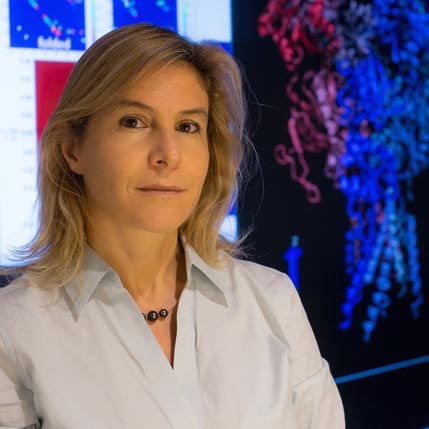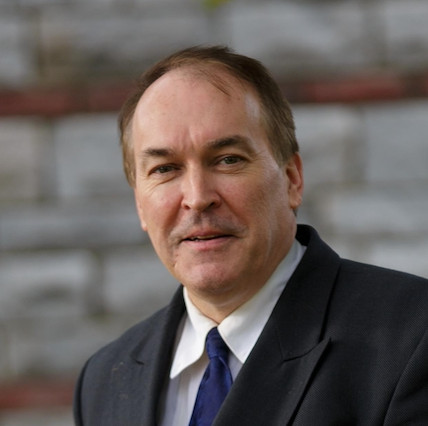Cecilia Clementi - Freie Universität Berlin
Enabling software solutions to address outstanding science challenges in molecular sciences
Ignacio Pagonabarraga - CECAM
E-CAM: addressing modelling challenges in multiple scales in the HPC leading edge
Peter Coveney - University College London and University of Amsterdam
Supercomputing, COVID-19 and the Transformation of Medicine
Thursday July 2 2020
Cecilia Clementi

Enabling software solutions to address outstanding science challenges in molecular sciences.
The field of computational molecular sciences -- quantum chemistry, materials science, and biomolecular simulation -- has made innumerable contributions to the understanding of the molecular phenomena that underlie and control chemical and physical processes. Today, the field stands as a "full partner with experiment" in scientific discovery, and is central to solving the next generation of Grand Challenges facing the world's economy, health, and security. Since 2016, the NSF-funded Molecular Sciences Software Institute (MolSSI) is a nexus for science, education, and cooperation serving the worldwide community of computational molecular scientists. MolSSI builds open-source software and data which serves the computational molecular science community. It is designed to serve and enhance the software development efforts of the broad field of computational molecular science, with the goal to enable molecular scientists to tackle problems that are orders of magnitude larger and more complex than those currently within our grasp. I will discuss the ongoing activities of MolSSI in the context of the main scientific challenges faced by computational molecular scientists today.
After 19 years as a Professor of Chemistry at Rice University, in Houston, Texas, since June 2020 Dr. Clementi is a Professor of Physics at Freie Universität Berlin, Germany. Dr. Clementi is also a senior investigator of the Center for Theoretical Biological Physics of Rice University and a co-director of the NSF-funded Molecular Sciences Software Institute (MolSSI). Dr. Clementi's research activities focus on the development and application of theoretical and computational tools to study the long-timescale dynamics of complex macromolecular systems, for the characterization of biological function. Over the years, Clementi's group has proposed coarse-grained and multi-resolution models and analysis tools to study protein dynamics, folding, and function.
Ignacio Pagonabarraga

E-CAM: addressing modelling challenges in multiple scales in the HPC leading edge
E-CAM, a Center of Excellence for Computing Applications, supports the development of scientific software with clear industrial and societal interest, in view of exploiting HPC resources. The developed software targets efficient implementation of existing algorithms and optimal first deployment of new methods. Through application co-design for HPC technologies, the provision of libraries and frameworks in domains relevant to exascale computing, such as high throughput computing and load-balancing, and delivery of the respective training, we push the community to exploit the HPC resources available at a European level. These developments open venues to address new scientific challenges across areas including rare events, electronic structure, quantum dynamics, and meso and multiscale modelling. E-CAM benefits from input and coordinated actions within the CECAM network, which includes leaders in each of these areas therefore providing a unique access point to broad simulation expertise. The capabilities of the network are demonstrated by the range of successful pilot project with academic and industrial partners that currently span applications in materials, quantum computing, and biophysics.
Ignacio Pagonabarraga is the CECAM Director since 2017. He is professor in Condensed Matter Physics at the University of Barcelona (Spain) since 2010. His research activity is focused on the development and use of computational and theoretical methods to understand and predict the properties and behavior of soft matter, with special emphasis in non-equilibrium systems and, more recently, active matter.
Peter Coveney

Supercomputing, COVID-19 and the Transformation of Medicine
To deliver a novel drug currently takes on average a decade or longer and costs billions of euros or dollars. As a result of COVID-19, we have no choice but to attempt to deliver treatments at pandemic speed. I believe supercomputers can fix the current broken model of drug development. By placing more emphasis on unravelling the mechanisms underpinning biology, physiology and pathology, using computer models that meet the most rigorous standards of verification, validation and uncertainty quantification, and by running them on the most powerful computers in Europe, America, Japan and globally, I believe we can achieve truly predictive bioscience, marking a paradigm shift in the way we develop new drugs that will transform medicine.
Prof Peter V. Coveney holds a chair in Physical Chemistry, is an Honorary Professor in Computer Science at University College London (UCL), a Professor in Applied High Performance Computing at the University of Amsterdam (UvA), and Professor Adjunct at Yale University School of Medicine (USA). He is Director of the Centre for Computational Science (CCS) at UCL. Coveney is active in a broad area of interdisciplinary research including condensed matter physics and chemistry, materials science, as well as life and medical sciences in all of which high performance computing plays a major role. He has published more than 440 scientific papers and co-authored two best-selling books and is lead author of the first textbook on Computational Biomedicine. Coveney is a founding member of the UK Government’s E-Infrastructure Leadership Council and a Medical Academy Nominated Expert to the UK Prime Minister's Council for Science and Technology on Data, Algorithms and Modelling which has led to the creation of the London based Turing Institute.
Q & A

 About
About
